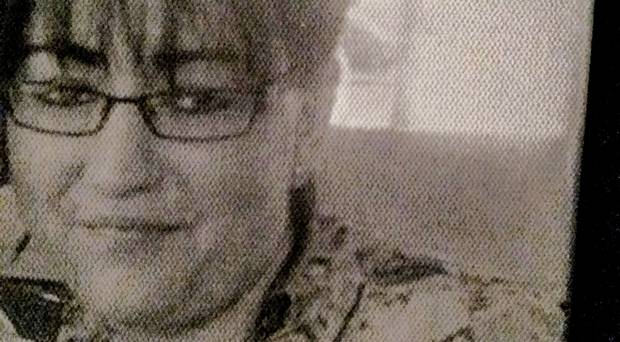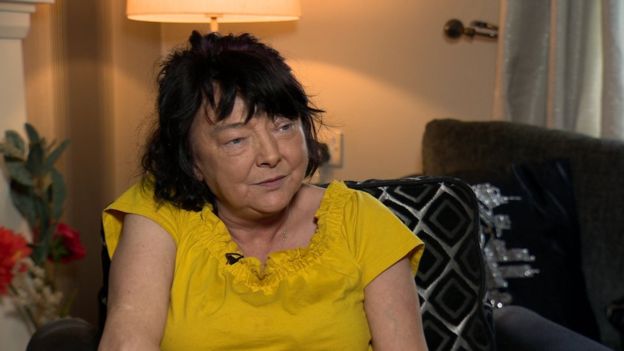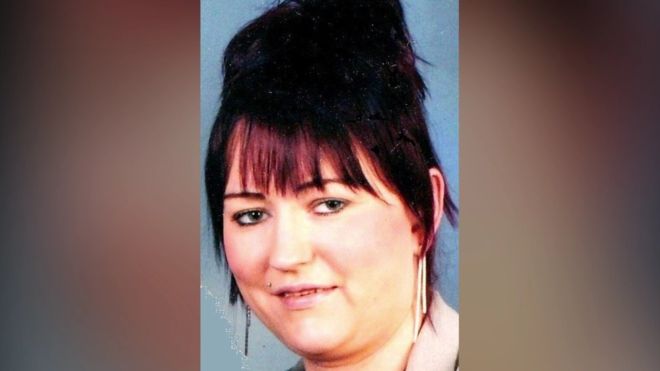
Amanda Deehan who tragically died in January this year
Amanda Deehan, 34, who had mental health problems, tragically died in January of this year.
Her partner and parents claim the city is being “flooded by drugs”.
All three have called for specialist services to help deal with what campaigners describe as “a deepening drugs crisis”.
Ms Deehan’s mother Christine said her daughter was in a vicious cycle and could not escape.
She and her husband Gerald decided to speak out in the hope it will encourage others to get help.
“These fake pills that they’re buying, they don’t know what’s in them,” said Mrs Deehan.

Christine Deehan said her daughter was in a vicious cycle or drug abuse and could not escape
“These boys are making big bucks out of young ones, I don’t know how they can live with themselves.”
While her family has been “ripped apart” by losing Amanda, her mother insisted she did not want her daughter to have died in vain.
Gerald Deehan said there is an urgent need for more specialist services in the city to cope with the sheer scale of the drugs problem.
“It’s so blatant. You can walk around this city and you’ll see young ones walking around like zombies, as if their soul has been took out of their body.”
Ms Deehan’s partner of four years, Terri Arthur, said they had planned a positive future.
“To say the love of my life was an understatement. She was my world.
“Somebody has to speak up about this. It’s happening too often. The drugs in this town are taking over.
“When I was growing up, you heard of people doing this at weekends. Now it’s an everyday occurrence.”

Amanda Deehan was addicted to prescription tablets
Dr Joe McEvoy said drug addiction is a complex problem for health professionals in the city.
“What’s happened now is, we have people on codeine derivatives, and then people on the benzodiazepines, but also you’ve got new medications like Xanax, which is not actually prescribed here,” he said.
“Instead of what used to happen – people were addicted to one prescription drug – they’re taking many different things or even ordering things online that they don’t know what they’re taking.
“They’re being sold as one thing and given something totally different. It’s called poly drug abuse, which makes things much more complicated.”
The Western Trust said there are a range of services currently available, as well as emergency help for those in difficulty.
It added: “The Western Trust provides inpatient and outpatient services for drugs and alcohol addiction.
“This includes an eight-bed complex detoxification unit based at the Asha Centre at the Tyrone and Fermanagh Hospital in Omagh.
“There are two community addiction teams – one in the northern sector (Woodlea House, Derry) and one in the southern sector of the trust (the South West Acute Hospital and Tyrone and Fermanagh Hospital). (These are) multi-disciplinary teams that specialise in drug and alcohol assessment and treatment.
“(This) may include community detoxification, brief intervention, advice, education, crisis management and cognitive behaviour therapy.
“Alcohol and opiate detoxification is also available on an outpatient or inpatient basis when clinically indicated by assessment.”
A pilot Community Crisis Intervention Service (CCIS), launched in Derry last January is also available during peak demand times from Thursday evening to Sunday mornings.
This is a community-led service for individuals who are observed to be in distress and potentially vulnerable and who may be at risk of suicidal behaviour.
Joe Thompson from the CCIS said the service would do all it could to help those in danger.
“The people who come to us have a wide range of issues that they may be finding difficult to deal with,” he added.
“Addiction is a very complicated issue and requires specialist intervention.
“But if people are in distress and are suicidal, they can come in to us.
“We are a non-clinical service, which is something new.
“What we offer is a space for people to come into that is safe, welcoming and warm.
“They can talk with people who won’t judge them and who will listen to and treat them like human beings.
“We help in a collaborative way. We devise a safety plan that is going to keep them alive for the duration of the rest of the weekend to such times as they can link in with their GP or mental health team.
“We are based on Bishop Street in Derry in a neutral environment.
“No matter where someone lives in the city, we are no more than 20 minutes away.
“The fact that someone can come here and be seen quite quickly can make the difference in keeping someone alive.”
You can reach a member of the CCIS team by calling 028 7126 2300 between 8pm on Thursday and 8am on Sunday.
Anyone who is struggling with addiction can also speak to Lifeline counsellors 24 hours a day on 0808 808 8000.
Tags:




